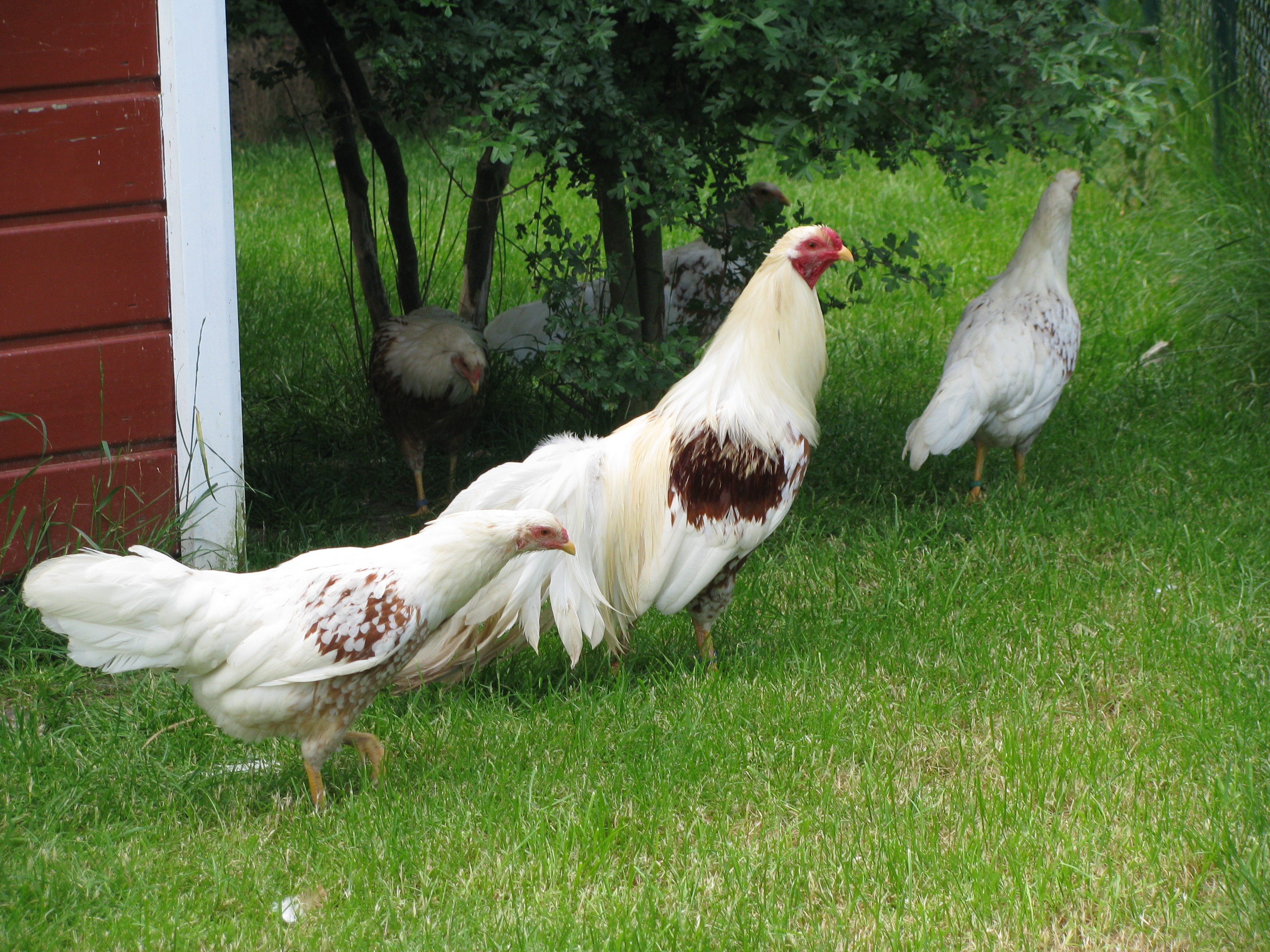
Hagen Graebner, CC BY-SA 3.0 https://creativecommons.org/licenses/by-sa/3.0, via Wikimedia Commons
Yokohama chickens are a unique breed known for their striking appearance and elegant carriage. They originated in Japan and are named after the city of Yokohama. Yokohamas are primarily kept for ornamental purposes, admired for their long, flowing tail feathers and distinctive color patterns.
If you order baby chicks through the links in this article, we may receive a small fee at no extra cost to you.
Physical Characteristics
Yokohama chickens are medium-sized birds with a long and slender body shape. They typically have vibrant and eye-catching color patterns, including black-breasted red, white, and red pyle. One of their unique physical features is their long, flowing tail feathers, which can extend several feet in length, adding to their graceful appearance. Additionally, they often have small, neat rose combs atop their heads.
Yokohama Egg Production
Yokohama chickens typically lay around 2 to 3 small to medium-sized eggs per week. The eggs are typically white or cream in color. However, Yokohamas are not known for their high egg production, and their laying frequency can vary throughout the year.
Temperament and Behavior
Yokohama chickens tend to have a flighty temperament, often being skittish and wary of humans. They may not be as friendly or docile as some other breeds. However, with proper handling and socialization from a young age, they can become more tolerant of human interaction. They are generally good foragers and enjoy free-ranging, but they can also adapt to confinement as long as they have enough space to move around and express natural behaviors.
Hardiness and Climate Tolerance
Yokohama chickens are generally well-suited to moderate climates. They can tolerate both cold and hot temperatures, but extreme conditions may require additional shelter or protection. While they are not particularly known for their hardiness, they can be susceptible to common poultry diseases, so regular health checks and proper care are essential to maintain their well-being.
Purpose
Yokohama chickens were primarily developed for ornamental purposes. They are admired for their striking appearance and long, flowing tail feathers, making them popular choices for exhibition and ornamental flocks. While they are not typically raised for meat or egg production, they excel in adding beauty and elegance to poultry collections and exhibitions.
Broodiness of Yokohama Chickens
Yokohama chickens are not known for being particularly broody. They may occasionally go broody, but it’s not a common trait in this breed. If they do become broody, they can be attentive mothers, but their broodiness tends to be less consistent compared to some other breeds.
Yokohama Feeding Requirements
Yokohama chickens do well on a balanced diet of commercial poultry feed supplemented with occasional foraging opportunities. Providing access to fresh water at all times is essential for their health. Additionally, offering occasional treats such as fruits, vegetables, and mealworms can help enrich their diet and provide additional nutrients.
Browse top chicken feed brands and chicken feeder reviews for Yokohama chickens.
Space and Housing Needs
Yokohama chickens require sufficient space in both the coop and the run to thrive. In the coop, they need a minimum of 4 square feet per bird, while in the run, they require about 10-12 square feet per bird. Housing should provide protection from predators and have proper ventilation to maintain good air quality. Additionally, providing roosting bars and nesting boxes will help accommodate their natural behaviors.
Build the perfect home for your Yokohama chickens with our curated picks for chicken coops and nesting boxes.
Health and Common Issues
Yokohama chickens are generally healthy birds, but they can be susceptible to certain health issues. One common concern is their long tail feathers, which may be prone to damage or injury if not properly cared for. Owners should monitor their Yokohama chickens regularly for signs of illness, including lethargy, changes in appetite, or abnormal droppings, and seek veterinary care if any concerns arise. Regular health checks and providing a clean living environment are crucial for maintaining their well-being.
Yokohama Lifespan
Yokohama chickens typically live for about 6 to 8 years on average. Their lifespan can vary depending on factors such as genetics, diet, and living conditions. With proper care and attention, some individuals may live even longer.
Noise Level
Yokohama chickens are generally quiet birds. They are not known for excessive vocalization and tend to make soft clucking sounds. Overall, they are considered to be relatively peaceful and unobtrusive in terms of noise level.
Special Care Considerations
Yokohama chickens don’t have many unique care requirements. However, their long tail feathers may need extra attention to prevent damage or injury. Owners should provide adequate protection from predators and ensure their living environment is clean and well-ventilated to promote good health. Additionally, regular grooming and monitoring for signs of stress or discomfort can help maintain their well-being.
Common Uses
Yokohama chickens are primarily kept for ornamental purposes. Their striking appearance and elegant carriage make them popular choices for exhibition and ornamental flocks. While they are not typically raised for meat or egg production, they contribute to small-scale egg production and enhance the aesthetic appeal of backyard flocks with their ornamental qualities.
Fun Facts and Unique Characteristics
Yokohama chickens are known for their distinct appearance, particularly their long, flowing tail feathers that can reach impressive lengths. This breed originated in Japan and was developed through selective breeding for ornamental purposes. They are often described as graceful and elegant, adding a touch of beauty to any poultry collection or exhibition.
Where Can I Find Yokohama Chicks?
Yokohama chickens are relatively uncommon compared to more mainstream breeds. They are not as readily available for purchase as some other chicken breeds. However, enthusiasts and specialty breeders may offer them for sale, particularly within niche poultry communities or online marketplaces.